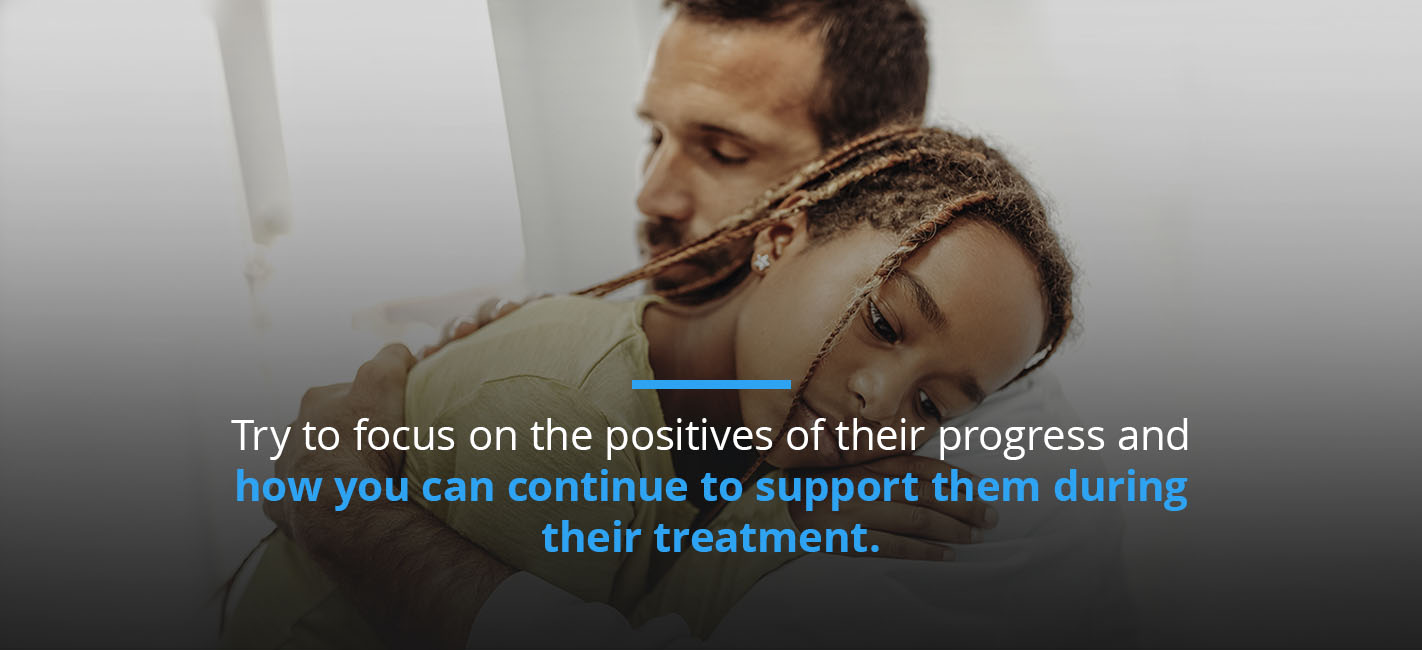When raising your children, you’ll help by giving advice and guiding them through life, but there may be situations that require more help than a parent or guardian can provide. In these cases, a child could benefit from the help of a therapist. Many situations can guide your decision to schedule an appointment with a therapist for your child. If you notice some concerning behavioral changes, your child has experienced a life-changing experience or your child has trouble sleeping, a therapist may be able to assist. While the reason your child may need to visit with a therapist can vary, deciding to schedule the appointment is a step in the right direction. Navigating the process of introducing your child to therapy can be smoother with the right resources and helpful tips. Learn how you can be a supportive and engaging parent or guardian when your child begins therapy.
Does Your Child Need Therapy?
Children often have emotional outbursts or express a roller coaster of emotions, but certain situations may stick out more and require professional counseling. Parents and guardians should look out for certain behavioral changes and consider major life events when determining whether their child needs therapy. Some prominent signs that may indicate if your child needs therapy include:
- Rapid change in interests: Gradual changes in your child’s hobbies, activities or interests are normal, but a sudden, uncharacteristic shift in these areas is something you should look into. Abrupt changes in habits like sleeping, eating, school and other common routines are also things to consider.
- Rebellious behaviors: A common indication of whether a child should see a therapist is when they are frequently defiant or rebellious. You may notice that they are defensive or argumentative at home, but exhibiting these behaviors at school and other places can reveal an underlying problem.
- Regressions: Children show signs of regression during life occurrences such as parents splitting up, a new sibling being introduced or other significant changes in their life. Regressions may also occur out of the blue. Some common regressions a child may express include separation anxiety, fearfulness, bedwetting, constant temper tantrums and reduced speech.
- Extreme sadness: If your child continuously shows signs of intense worrying or deep melancholy, scheduling an appointment with a therapist is a good course of action. Sometimes sadness is a normal part of a child’s life, especially during big changes. However, you should consider therapy when intense sadness takes over your child’s thoughts and impacts their daily routine.
- Trouble socializing: If your child is starting to remove themselves from social situations or avoid their friends or classmates, therapy can be a beneficial option to explore the root of this behavior. Kids can have days where they want to stay to themselves, but a continual pattern of self-isolation can impact their relationships and social skills. An example of social isolation is not wanting to attend playdates, leave the house or be with close friends.
- Mentioning self-harm: A behavior or expression that should be handled immediately is if your child shares thoughts or signs of self-harm. Signs of self-harm vary between children and teens, but they should always be handled urgently with self-harm counseling. Younger kids may hit themselves or dig their nails into their skin. Teens may show signs of hopelessness or explicit indications of self-harm.
Getting your child the help they need to conquer these feelings and grow is one of the best things a parent or guardian can do. Whether the problems they’re facing are subtle or intense, finding a therapist that can help your child find ways to navigate their problems will be beneficial for their well-being.
What to Expect From Therapy for Your Child
There are understandably numerous questions that you may have regarding the process and what you can expect when starting your child in therapy. Several prominent questions that many parents or guardians ask are: What does the process look like for my child? How long will treatment last? What can I do to help? The timeline of your child’s therapy process will vary depending on multiple factors. Every person progresses at different speeds. Your child may adapt to therapy quickly or require more time to warm up to the new process. Therapy appointments look different for every person. The overarching point of this treatment is for your child to learn how to work on their problems and find better ways to express themselves, communicate with others and cope with stressful situations. A therapist may provide certain goals in the beginning that your child should work toward. Your child may also communicate these objectives with you so you can contribute to their progress.
10 Tips for Supporting Your Child During Therapy
Taking the step to get your child counseling services is the beginning of both your child’s therapy journey and yours. Being an active participant in this process is essential as their parent or guardian. You are a central part of your child’s life and finding any way you can support them is beneficial. The next task on your checklist is to find a therapist or mental health professional that can provide quality counseling services for your child. Once you make an appointment, learn what to expect from these therapy sessions. You can help make the process of therapy more efficient by knowing how the appointments will run and how you can collaborate with your child’s therapist. Learning to support someone in therapy can be a big undertaking. If you’re wondering how you can support and encourage your kid throughout therapy, check out these helpful tips that can ease the process.
1. Explain Therapy to Your Child
The first thing you can do when you schedule an appointment with a therapist for your kid is to explain the process of therapy and how it can help them. When you find a suitable therapist for your child, set aside time to chat with them and learn every detail about their therapy process. Learn what the first session will look like and anything else that can help you communicate the therapy process to your child. 
2. Be Active in Your Role
You play a big role in your child’s life, and that also applies to their therapy process. While you should still allow your child to work through goals independently, you can help by being organized when going to the therapist’s office and staying fully engaged in all conversations. Being an active participant in your child’s therapy helps you understand how you can help your child. You will also show them that you’re taking this process seriously, and they should too. You can accomplish this goal by always arriving at appointments on time, marking appointments down on a shared calendar and having meaningful conversations with your child’s therapist.
3. Ask Your Child’s Therapist for Suggestions
Playing an active role in your child’s therapy process is essential for helping your child progress through their problems. Their therapist can give them great advice and have purposeful conversations during their sessions, and continuing the progress at home can be beneficial. Meet with your child’s therapist one-on-one to ask for any suggestions on supporting the work they’re completing during therapy sessions. Parents and guardians may need help with parenting tips and methods when their child is experiencing a tough situation. Working with your child’s therapist to get some ideas for conversations to have at home or parenting methods that can help continue the progress your child is making in therapy is a great way to support your child.
4. Remember and Respect Boundaries
A major element of therapy is confidentiality. While the levels of privacy may look different between a child in middle school and a teenager, the majority of therapy session conversations are private between your child and the therapist. Respecting boundaries and confidentiality with your child is important. Older children and teens, especially, may feel more comfortable opening up with their therapist when nobody else will know what they’re talking about. While the therapist will inform you about how progress is going and how you can continue to support your child’s therapy, you won’t know all of the details of their conversation. The level of confidentiality varies if you have a younger child or you’re participating in family therapy. It’s important to learn all of the confidentiality rules from the therapist before sessions begin.
5. Find the Right Therapist
Sometimes, the first therapist isn’t the right fit for your child. Finding the right therapist can make all the difference in your child’s progress. You have numerous types of therapists to choose from, like counselors, clinical psychologists, clinical social workers and psychiatrists. There are also different types of therapy that may benefit your child, including talk therapy, cognitive behavioral therapy, family therapy and group therapy. 
6. Build Trust
Establishing trust with a stranger can be an intimidating task for a child of any age. A way you can support your child during therapy is to assure them that the therapist wants to help and explain why going to therapy is important. You can sit down with your child and clarify that this isn’t because they’re in trouble or anything negative, and that seeing a therapist can help them feel better. Listen to your child and their concerns or fears regarding therapy. Address those concerns by sharing information about how therapy works and sitting with them when they first meet their therapist. The more they trust the process, the better the experience can be for your child.
7. Practice Excellent Communication
Collaborating with your child’s therapist is a great way to strengthen the process. Ask the therapist right from the start the best ways you both can communicate between sessions. You can express specific concerns you have before appointments or ask for advice after an appointment. This method is a great way to be engaged with your child’s therapy process. You can also practice meaningful communication with your child regarding their therapy experience. Without prying for too much information, ask how their session was and allow them to share what they feel comfortable talking about.
8. Be Positive and Understanding
The process of therapy isn’t simple for everyone. Your child may have challenges to overcome or situations to cope with and the entire process will take time. When something doesn’t go how you hope it would during your child’s therapy progression, it’s important to stay hopeful and understanding. Expressing judgment or frustration can have a negative impact on your child. Try to focus on the positives of their progress and how you can continue to support them during their treatment.
9. Be Honest With Yourself and the Therapist
The most beneficial thing you can contribute to your child’s therapy treatment is honesty. Progress can continue as long as everyone is truthful, enabling the therapist to make the best recommendations and treatment plans. Even if it’s not easy to face the reality of the situation, it’s important to share any information that will benefit your child’s therapy sessions. You should be honest with the therapist and your child during the entire therapy treatment process.
10. Allow Your Child to Work Independently
It’s tempting to be involved in every part of your child’s therapy experience. However, allowing your child to practice some independence in the situation so they can learn how to use coping methods or other techniques on their own is important. Trust that the therapist knows how to help your child.
Teletherapy vs. In-Person Therapy
You can decide between two forms of therapy sessions — teletherapy and in-person therapy. Both exist to help fit therapy into any person’s schedule. Here are some benefits of each type of therapy session:
- In-person: The patient may have an easier time building trust with the therapist, they don’t have to rely on technology for their sessions and it can be easier to focus during an in-person appointment.
- Teletherapy: The patient may find teletherapy more convenient because they don’t have to leave their house. This type of session is also more accessible.
Contact Merrimack Valley Psychological Associates to Start the Journey
Supporting your kid during therapy is the best way to help your child make progress and grow to be resilient. Encouraging someone in therapy may be challenging, but it is beneficial for both yourself and your child. You can start the therapy journey today by contacting the clinicians at Merrimack Valley Psychological Associates regarding therapy for your child and how to set up an appointment.
Reviewed By
Dr. David Rainen, PsyD.
I am a licensed clinical psychologist with an extensive background treating a variety of different ages, situations, emotional and mental health disorders in individuals and their families. As part of my 10 year professional and training career in psychology, I have developed and refined my skills and approaches through my work in a variety of diverse settings including: hospitals, community outpatient facilities, college counseling centers, secure and unsecure inpatient/residential treatment programs, and therapeutic day schools.




